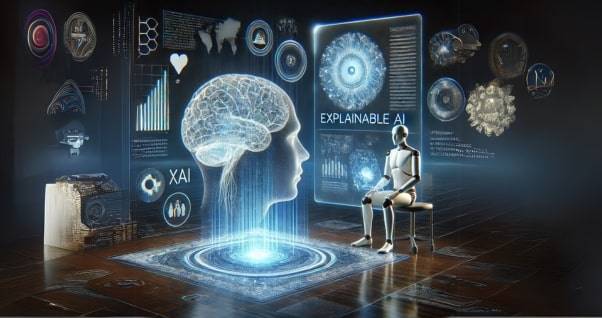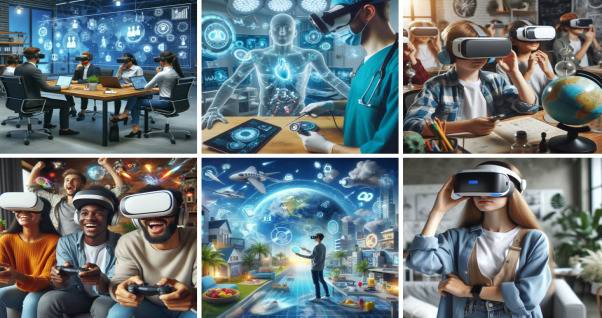Industry Integrated Programmes for INTEL-NEC: Specializations in AI/ML, Cybersecurity, and IoT
June 3, 2025: In today’s rapidly evolving technological landscape, the demand for skilled professionals in cutting-edge domains like Artificial Intelligence and Machine Learning (AI/ML), Cybersecurity, and the Internet of Things (IoT) has skyrocketed. To bridge the gap between academia and industry, INTEL-NEC has pioneered Industry Integrated Programmes designed to equip students with both theoretical knowledge and practical expertise in these key specializations.
These programmes not only foster deep technical understanding but also ensure students gain hands-on experience through real-world projects, internships, and collaborations with leading tech companies. This blog explores the three core specializations offered by INTEL-NEC—AI/ML, Cybersecurity, and IoT—highlighting their importance, curriculum structure, and career opportunities.
With technology advancing at an unprecedented pace, bridging the gap between education and industry is essential. INTEL-NEC’s Industry Integrated Programmes in AI/ML, Cybersecurity, and IoT provide comprehensive training, hands-on experience, and industry exposure, preparing learners for the challenges and opportunities ahead. If you’re passionate about cutting-edge technology and want to be part of the digital revolution, explore INTEL-NEC’s programmes and take a decisive step towards your future in tech.
Understanding Federated Learning: Privacy-Preserving AI for the Modern World
June 3, 2025: Artificial Intelligence (AI) has become an integral part of our daily lives — powering everything from personalized recommendations on streaming platforms to medical diagnostics and smart assistants. These AI systems rely heavily on data, which is often personal and sensitive. However, traditional AI models require centralizing data on servers, raising serious concerns about privacy, data security, and compliance with regulations like GDPR and CCPA.
To address these challenges, the AI community has introduced an innovative approach called Federated Learning (FL). Federated Learning enables AI models to learn from decentralized data, offering a powerful way to preserve privacy while harnessing the benefits of machine learning.
Federated Learning represents a transformative shift in how AI models are trained, moving from centralized data collection to decentralized, privacy-preserving collaboration. By allowing AI to learn from data without exposing it, FL balances the growing demand for intelligent systems with the essential need to protect user privacy. For organizations and developers aiming to innovate responsibly, federated learning offers a practical, forward-looking path that respects both the power of AI and the rights of individuals.
AVIT Integrates Industry Collaborations into Engineering Curriculum
May 16, 2025: Chennai’s Aarupadai Veedu Institute of Technology (AVIT) has introduced a groundbreaking shift in engineering education through strategic industry collaborations. AVIT has now made all its engineering programs industry-integrated to bridge the gap between academics and industry relevance. A recent MoU signed with Medini Technologies—a prominent training partner—ensures Civil and Mechanical Engineering students are trained in cutting-edge technologies like Building Information Modeling (BIM) and Product Design & Manufacturing.
The curriculum includes certifications from global tech leaders such as Autodesk, Bentley, Dassault, and PTC, with every semester offering students hands-on projects, mentorship from industry experts, and AICTE-approved internships. Students also earn Credly badges—globally recognized digital credentials—upon successful project completion. With guaranteed placement opportunities and industry-aligned learning, AVIT ensures its graduates are not just degree-holders but skilled professionals ready for the real world. This initiative aligns with the New Education Policy and sets a new benchmark for engineering education in India.
Vinayaka Missions Research Foundation Announces "From Lecture Halls to Parliaments: How Youth Can Lead the Peace Movement" Essay Competition - College Students
April 7, 2025: Vinayaka Missions Research Foundation (VMRF), in collaboration with the Sree Vishnu Mohan Foundation, has announced the "From Lecture Halls to Parliaments: How Youth Can Lead the Peace Movement" essay competition. The initiative invites undergraduate and postgraduate students across India to explore how youth can drive peace through involvement in governance and policy-making. The competition encourages critical thinking, awareness, creativity, and leadership skills in the context of peacebuilding.
The competition focuses on topics such as historical youth-led movements, the role of technology in mobilizing young people, and the significance of education in fostering peace. The winners will receive cash prizes. Prizes include INR 10,000 for first place, INR 7,500 for second, and INR 5,000 for third. The initiative fosters empathy, leadership, and effective communication skills in youth, promoting a culture of peace and the opportunity to interact with Shri Ram Nath Kovind, the Hon’ble Former President of India, during the World Peace Conference at Vinayaka Missions Chennai Campus from April 11-13, 2025.
Vinayaka Missions Research Foundation Hosts "Conflict vs. Peace: Resolving Disagreements without Violence" Essay Competition - School students
April 7, 2025: The "Conflict vs. Peace: Resolving Disagreements without Violence" essay competition invites students from grades 9 to 12 to explore the importance of peaceful conflict resolution. Organized by Vinayaka Missions Research Foundation – Deemed to be University in collaboration with Sree Vishnu Mohan Foundation, the competition encourages critical thinking about conflict and peace. It will culminate during the World Peace Conference at Vinayaka Missions Chennai Campus from April 11-13, 2025.
The competition offers cash prizes and an opportunity for winners to interact with Shri Ram Nath Kovind, the Hon’ble Former President of India, on April 11, 2025. Essays will be evaluated based on content, structure, language, and creativity, with themes including conflict resolution principles, emotional intelligence, and peace education.
Prizes include INR 10,000 for first place, INR 7,500 for second, and INR 5,000 for third. The initiative fosters empathy, leadership, and effective communication skills in youth, promoting a culture of peace.
March 6, 2025: The Indian Institute of Technology (IIT) Madras hosted the 3rd edition of IInvenTiv, a two-day research and development fair, on 28 February and 1 March 2025.
This mega R&D fair brought together the country’s top research institutions, including IITs, NITs, IISERs, and the top 50 NIRF-ranked institutions.
A select group of students and faculty from Aarupadai Veedu Institute of Technology (AVIT) had the privilege of attending this prestigious event as part of an exclusive industry visit.
The visit provided an opportunity for AVIT’s aspiring engineers and researchers to witness groundbreaking innovations, engage with leading scientists, and gain valuable insights into the latest advancements across various technological domains.
The industry visit to IInvenTiv 2025 reflects AVIT’s commitment to encouraging experiential learning opportunities to its students.
By nurturing a culture of innovation and research excellence, AVIT provides a platform for its students to thrive in the evolving technological landscape.
Perception Engineering: The Future of Human Experience
![]()
March 4, 2025: Perception engineering is a revolutionary field that focuses on modifying, enhancing, or optimizing human perception through technology, neuroscience, and cognitive science. It involves designing systems and environments that influence how individuals process sensory information, shaping their understanding of reality. This concept is at the heart of virtual reality (VR), augmented reality (AR), artificial intelligence (AI), robotics, and human-computer interaction (HCI).
How Perception Engineering Works
At its core, perception engineering leverages cognitive psychology, optics, and computational techniques to manipulate sensory input. The human brain interprets reality based on the information it receives from the senses. By altering these inputs through visual, auditory, or haptic stimuli, engineers can create immersive experiences that feel real, even when they are digitally constructed.
For example, in extended reality (XR) applications, perception engineering helps create depth perception, motion tracking, and realistic haptic feedback to enhance virtual experiences. This technology ensures that interactions within virtual environments feel natural and intuitive, reducing discomfort and improving user engagement.
Applications of Perception Engineering
- Extended Reality (XR) and Gaming
- Artificial Intelligence and Robotics
- Healthcare and Assistive Technology
- Advertising and Consumer Experience
Brands and advertisers use perception engineering to enhance customer engagement by creating immersive storytelling experiences. Techniques such as 3D audio, interactive visuals, and sensory marketing influence consumer emotions and decision-making processes.
The Future of Perception Engineering
As AI, XR, and neuroscience continue to evolve, perception engineering will redefine how humans interact with digital environments. Future advancements will lead to smarter, more intuitive systems that seamlessly blend physical and digital realities, improving industries from education to defense.










Which one is better among AVIT University and Kalasalingam University?